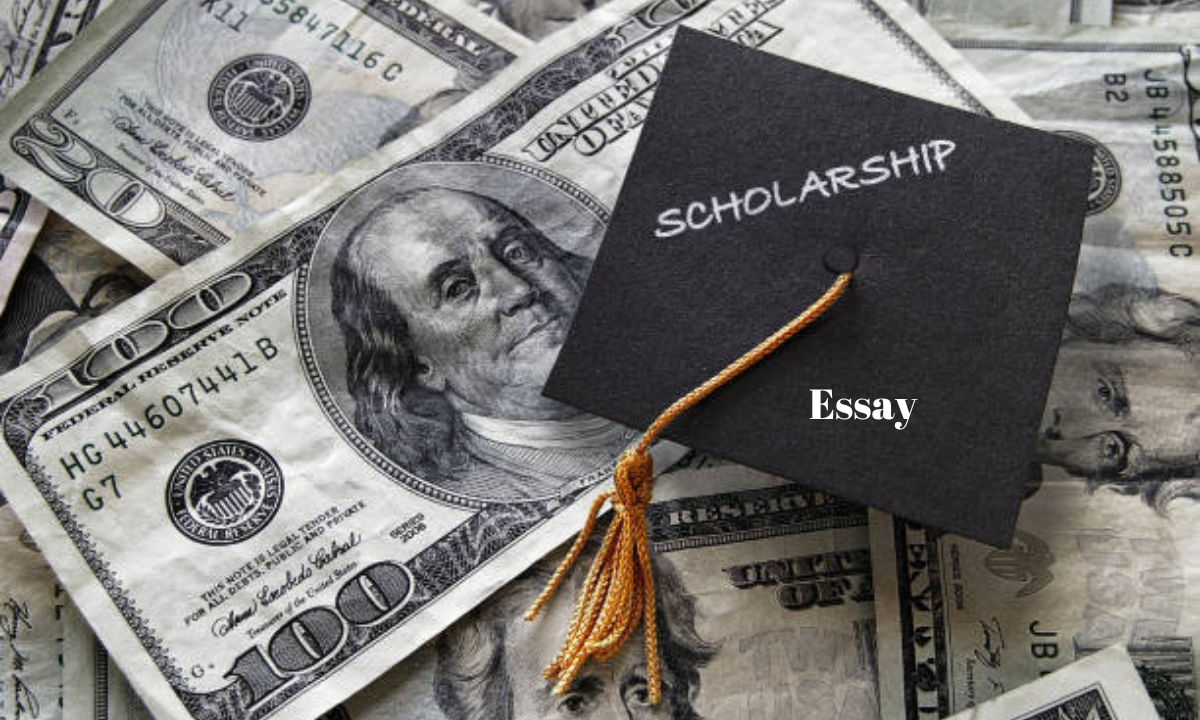Available Scholarships
Do Ivy League Schools Offer Athletic Scholarships?
Do Ivy League Schools offer athletic scholarships? The simple answer is no; Ivy League programs cannot provide you with an athletic scholarship to attend their university. Ivy League schools, on the other hand, have very appealing financial aid packages that can save you a lot of money. More on this later. For now, what are Ivy League Schools?
What are Ivy League Schools?
The Ivy League schools are schools that are born out of an NCAA division. They comprise of eight schools: Brown, Columbia, Cornell, Dartmouth, Harvard, Princeton, the University of Pennsylvania, and Yale.
Some of the most esteemed universities worldwide are members of the Ivy League. Only a tiny fraction of the thousands of applicants who apply to these eight schools each year are actually accepted. Ivy League institutions’ tuition, which ranges from $50,000 to $59,000 annually, is steep compared to other colleges with similar prestige. Financial aid packages are crucial for students who are struggling to pay for school because of the high tuition price alone.
Athletics can help some students make college more affordable, and looking for schools that offer athletic scholarships can even be part of the college search process. In fact, despite the fact that only 14.8% of college students participate in intercollegiate sports, this equates to approximately 460,000 students. Athletic scholarships can be a valuable source of financial aid for these students, allowing people from all backgrounds to pursue higher education.
With thousands of student-athletes and even more students in need of financial aid, it is surprising that Ivy League schools do not offer athletic scholarships. Despite the fact that Ivy League schools are ranked as Division One schools by the National Collegiate Athletic Association (NCAA), athletes at Ivy League schools do not receive athletic financial aid.
Ivy League schools, on the other hand, provide their athletes with the same need-based financial aid opportunities as other students. In other words, while Ivy League athletes can apply for and receive need-based financial aid, they will not receive athletic scholarship offers from any of the Ivy League schools, so Ivy League recruits should consider other aid options in addition to the traditional athletic scholarship.
Is an Athletic Scholarship Possible in Ivy League Schools?
The most fundamental reason Ivy League schools do not offer athletic scholarships is that they sell themselves to prospective future student-athletes as the best academic schools in the country. Similar to Division 3 schools, they strive for a good balance of academics, athletics, and social life.
They believe that if they offered athletic scholarships, it would detract from the true academic experience. However, many Ivy League schools continue to compete at a high level.
They are appealing to athletes who want to get an amazing academic experience while also playing a sport at the highest level in college because they are part of NCAA Division One.
What Ivy League Schools Offer
Although Ivy League schools do not offer athletic scholarships, they do offer financial aid packages. I know of some people who went on to play Ivy League sports at some of the best universities for a fraction of the cost.
Ivy League athletes are still eligible for athletic scholarships, even though Ivy League schools only offer need-based financial aid; these scholarships are just not funded by Ivy League institutions. Numerous athletic scholarships and financial aid opportunities are funded by institutions other than universities, including associations, businesses, and even private citizens.
If you plan to participate in athletics at an Ivy League school but are worried about your finances, look into other athletic scholarships to see what financial aid options are available to you. Athletic scholarships, whether they are funded by a university or an outside organization, can be a valuable source of financial aid. Don’t let the high cost of Ivy League schools deter you; many other organizations offer athletic scholarships because they want to aid students.
So, in a sense, Ivy League sports do have scholarships; they just aren’t classified as such. Much of this will be determined by your grades and your parent’s financial situation. Make sure to apply for FAFSA as well as merit scholarships.
If you are an international student, check out how to get an Ivy League scholarship as an International student.
5 Myths About Getting Admitted to the Ivy League
1. The most crucial factor in being recruited by colleges, including those in the Ivy League, is athletic ability
Generally speaking, the more schools you have available to you when being recruited, particularly within the Ivy League, the better your grades and academic performance. If a candidate’s grades or academic performance don’t meet a minimum standard, top academic colleges won’t even consider the candidate’s athletic ability.
Many Ivies use something called the Academic Index when evaluating applications to see if a recruit has the necessary academic credentials to be accepted. For instance, many Ivy football programs look for candidates who meet one of five academic index cutoffs, and this system gives more opportunities to candidates with higher academic indexes. Certain average SAT scores may be required for each recruiting class in other sports.
2. There will be major conflicts between class and sports if I play sports at an Ivy
Ivy sports are subject to time constraints, but coaches and teachers are both accommodating. For instance, because of softball practices and games, I have missed a few Friday classes and have not been able to make it to many office hours. Every teacher I’ve had so far has been incredibly understanding of my circumstances and has offered to meet later or the following week.
On the other hand, the coaches are very understanding when we arrive late to practice after class or during office hours because they recognize that academics come first. Our coaches also plan practices around our class schedules, and they occasionally let us skip practice if we have a particularly busy day or week.
3. Ivies don’t send a National Letter of Intent, so until I get in, there isn’t a firm commitment
Ivies send out “likely” letters even though they don’t formally take part in the National Letter of Intent Program. These letters, which are sent out in October, are essentially conditional letters of admission, provided the student keeps up their academic performance. They are provided by the college prior to the formal acceptance letters being sent to all accepted students and can be requested by college coaches.
4. Colleges in the Ivy League are not in Division I
Many people are surprised when I tell them that we are NCAA Division I because there is much debate surrounding the power and level of competition of Ivy League sports. The time constraints imposed on Ivies are the real distinction between us and other DI teams.
Ivy League athletes are subject to strict time restrictions that are very stringent in the off-season and loosen up in-season. Ivies continue to field highly competitive teams in spite of these regulations, which are in place to make sure athletes have enough time to finish their academic work.
5. Ivy League schools don’t offer athletic scholarships, so I won’t be able to afford them
Ivy league schools frequently offer more funding through their financial aid program than you can get from a conventional athletic scholarship. Although Harvard’s annual tuition is about $70,000, most students I know received financial aid packages that were at least 90% of that amount, bringing their yearly tuition down to about $7,000. Along with other risks connected to how well you perform, athletic scholarships also establish a legally binding agreement to participate in that sport at that university.
However, although it is not a formal requirement at Ivy League schools, the overwhelming majority of students participate because they are so committed to their teams and sports. Besides that, many Ivy League admissions offices are “blind,” which means they don’t consider your financial situation or social standing when deciding whether to admit you.
Quick Facts About Ivy League Schools
- Ivy League schools compete at the Division One level
- They often carry larger rosters compared to other schools
- Traveling is similar to other D1 schools, just not as far in most cases
- You are still demanded the same athletically as other D1 programs
- The academics are more rigorous compared to most other Universities
FAQ
The NCAA requires division one athletes to have 90% of the institution’s minimum overall grade-point average required to graduate by the beginning of year two, 95% by year three, and 100% by year four. Because Ivy League schools are NCAA Division 1 schools, they must also follow these rules.
However, if you are involved in Ivy League sports, you should also consult with your coach and academic advisor to ensure that your academic progress is in accordance with any requirements that your specific school may have.
The Ivy League does not always have specific sports preferences. The schools have teams in more popular sports such as soccer, football, basketball, baseball, tennis, track and field, and so on, but they also have teams in less popular sports such as fencing, sailing, golf, rowing, and so on.
Because there is less competition in these less popular sports, they can potentially increase one’s chances of being admitted to an Ivy League as a student-athlete, but they can also raise major concerns about equity, as these sports are often only available to the upper classes. If you are interested in Ivy League athletics, consider visiting the individual athletic website for your Ivy League school of choice to find more detailed information.
Although the Ivy League does not offer athletic scholarships, they do occasionally recruit student-athletes. However, due to the prestige and fame of Ivy League schools, athletes frequently come to them, implying that recruiting is not common.
Each school has a limit on the number of athletes it can recruit for specific sports in a four-year period, so Ivy League schools only recruit a very small percentage of athletes. Furthermore, recruited athletes must maintain very high grades, which can be difficult when combined with the responsibilities of student athletics.
Recommended






